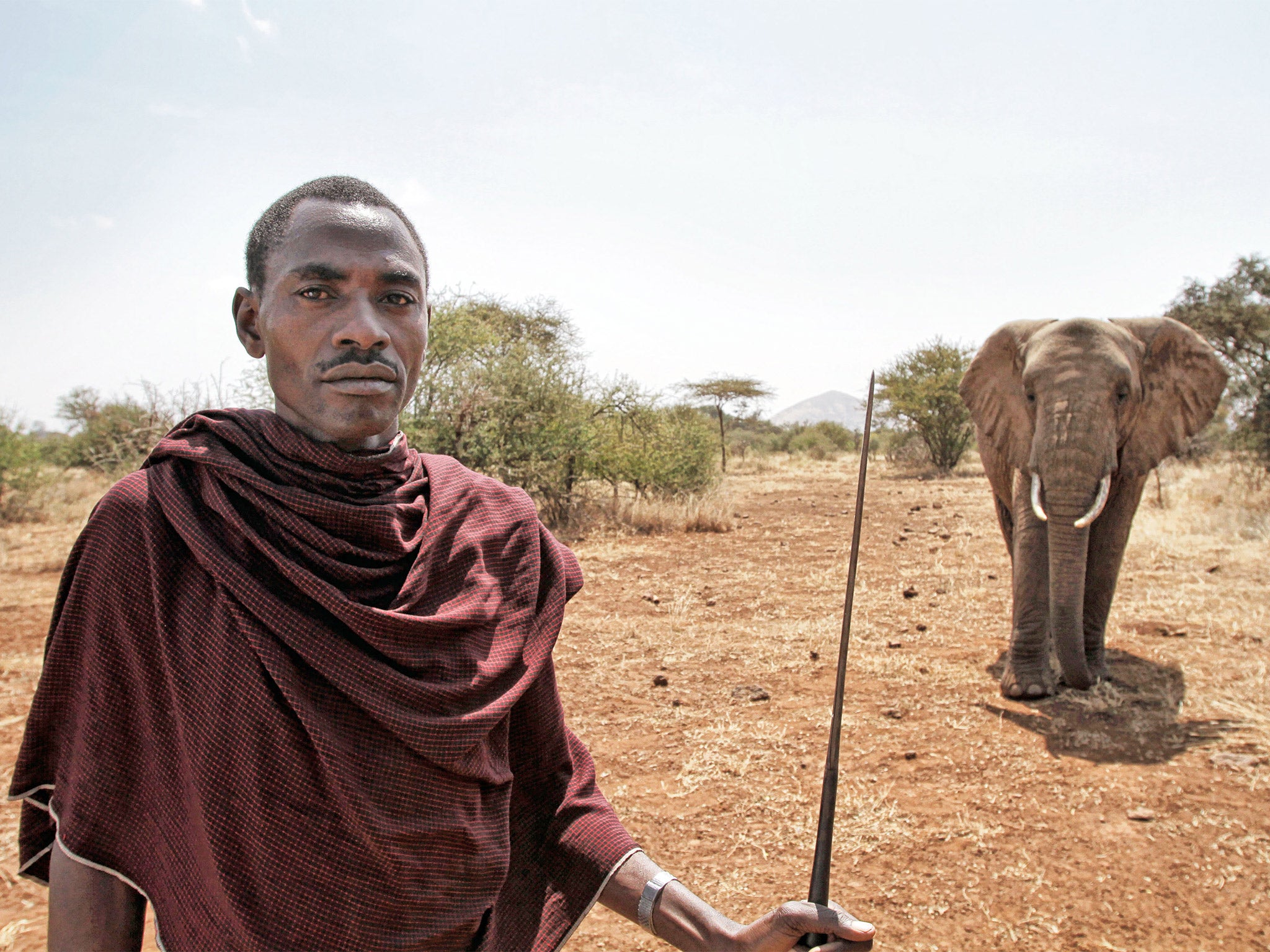Earth's Natural Wonders, TV review: A man hurling chilli-filled condom 'bombs' at marauding elephants? That is a wonder
Sally Newall wishes the BBC's documentaries weren't over quite so quickly

If there's one thing the BBC does very well, it’s nature documentaries. The first instalment of Earth’s Natural Wonders was up there with the best of them; with its cinema-worthy footage of epic peaks, deep canyons, vast expanses of rainforest and the people and wildlife that populate them all. Tiny creepy crawlies, frighteningly magnified, were given screen time alongside whales, condors and herds of majestic elephants.
There were human stories too; from the “ice fall doctors” carving out routes on Everest’s Khumbu glacier before summit season, to the boys fishing on flimsy wooden rafts in Cenderawasih Bay, Indonesia alongside 14-metre whale sharks. Narrator Olivia Colman (Broadchurch) provided the fitting superlatives. The theme here was “extreme”, but that was loosely defined. With six different countries shown, there was plenty to savour.

Personally, mountains are my nature porn; watching Everest's newest recruit inch along a ladder over a devastating-looking crevasse had my heart going. One slip and he’d be going to an icy grave, like we heard had happened to his predecessor. But the hardest human-focused watch were the young boys in the Amazonian tribe initiated into hunting life by being stung by hundreds of bullet ants (allegedly the creature with the most painful sting in the natural world).

The impact of these programmes is all in the filming, and the BBC makes sure you know the teams have risked life and limb. Not least those capturing marauding elephants on the slopes of Kilimanjaro as they were chased off maize crops by a one-man army hurling chilli-filled condom “bombs” in the dead of night. “It's like a war zone,” one cameraman said in the “Behind the Wonder” closing section as he narrowly missed a trampling.

The end of the hour left me wishing these projects weren’t over quite so quickly (there’s one episode to go). Why not dedicate more time to each segment? Give me 60 minutes on Everest or about those nasty ants please, Auntie.
Join our commenting forum
Join thought-provoking conversations, follow other Independent readers and see their replies
Comments